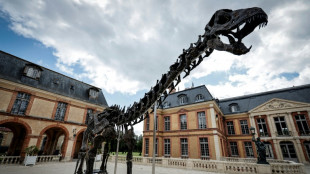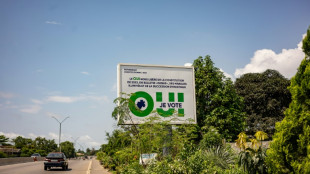US hiring slows sharply in August, joblessness rises
American employers slowed the pace of hiring in August after the surprising surge in the prior month and the jobless rate edged up, according to government data Friday, which could offer the central bank some relief that its inflation-fighting efforts are working.
The Federal Reserve is paying close attention to the progression of the hot job market, looking for signs of easing as it tries to cool the economy with steep interest rate hikes to tamp down inflation which has reached a 40-year high.
While the data showed wages continued to rise, the unemployment rate ticked up as more workers joined the labor force, a welcome development that could allow the Fed to opt for a smaller move later this month after two consecutive super-sized rate increases.
Even with the slowing pace, the job gains bring employment above the pre-pandemic level, the Labor Department said in the closely watched monthly report.
The US economy added 315,000 jobs last month, the report said, which was in line with what economists were expecting after 526,000 hires in July.
The unemployment rate moved back up to 3.7 percent, after dipping to 3.5 percent in the prior month, according to the data.
But wages continued to climb in August, as average hourly earnings rose another 10 cents, or 0.3 percent, to $32.36. Over the past 12 months, worker pay has increased by 5.2 percent.
Continued upward pressure is a cause for concern since the Fed fears it could lead to a wage-price spiral and push inflation higher.
Surging prices, exacerbated by high energy prices due to the Russian war in Ukraine, as well as ongoing supply chain struggles and Covid-lockdowns in China, has prompted the Fed to raise the benchmark borrowing rate four times this year, including giant 0.75 percentage point increases in June and July.
However, the latest data "may tip the scale towards a 50-basis point rate hike" at the September 20-21 meeting, said Rubeela Farooqi of High Frequency Economics, although the next report on consumer price inflation also will be a key factor.
Still, she said "these data are not going to change the Fed's view that policy needs to move to a restrictive stance over coming months."
In July, there were more than 11 million job openings, or two for every job seeker.
- 'Some pain' -
US GDP contracted in the first two quarters of 2022, which is commonly viewed as a sign of a recession, but the robust job market defies that definition.
Companies have faced a labor shortage for months, prompting them to offer higher wages, which is in turn driving up prices. And there are signs firms are "hoarding" workers -- holding onto seasonal employees for fear they might not be able to replace them later.
Fed officials have made it clear in repeated statements that they will continue to raise interest rates to cool the economy, even if monthly data show some signs of progress.
Fed Chair Jerome Powell hammered home this point last week at a conference in Jackson Hole, Wyoming, warning of "some pain to households and businesses," as well as a "softer labor market."
New data this week from payroll firm ADP showed private firms ratcheted back hiring in the month to 132,000.
"We think that these numbers suggest a shift to a more moderate pace of hiring," ADP chief economist Nela Richardson said.
Firms of all sizes are trying "to read what has become a complex economic picture."
But ADP data showed workers who left their jobs to find a new position saw a pay increase of more than 16 percent, compared to 7.6 percent gains for all workers over the past year.
A.Gmeiner--MP




